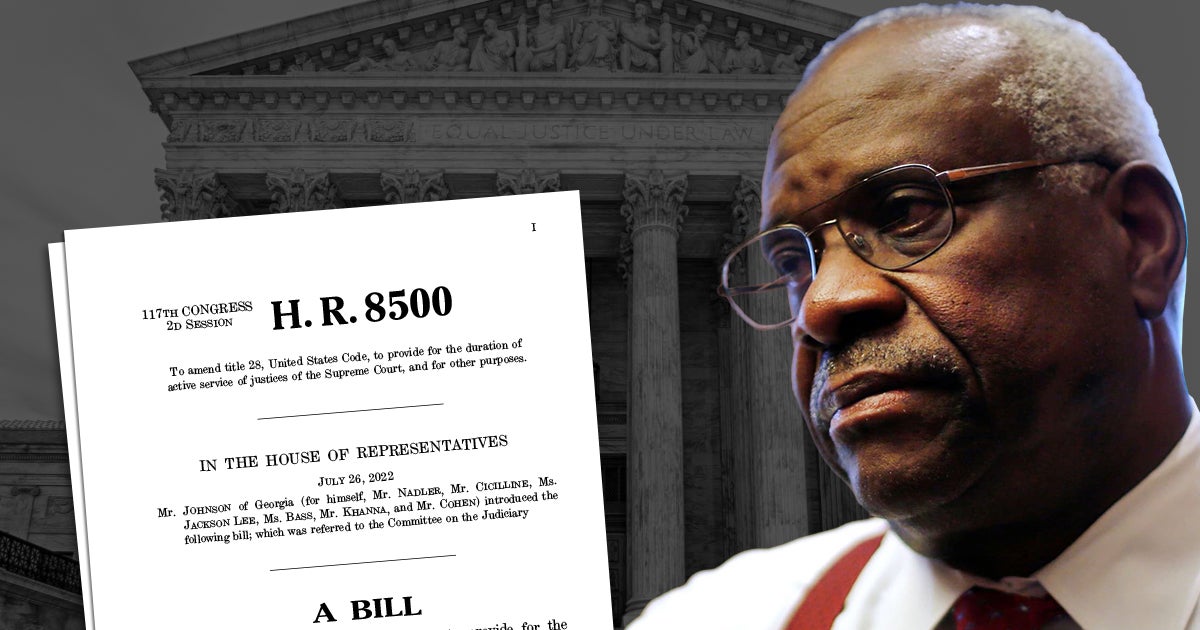
by First Liberty Institute • 6 min read
House Democrats recently introduced a bill to enact term limits for Supreme Court justices. The bill would authorize the President to elect a new justice every two years and limit each justice’s tenure to one 18-year term. This means the Court’s most senior justices—Chief Justice John Roberts, Justice Clarence Thomas, and Justice Samuel Alito—would soon have to transition to senior status (a form of retirement) in order to clear the way for new justices.
To clarify, the Constitution provides for lifetime tenure of federal judges. In the wake of recent Supreme Court decisions, multiple extreme proposals have surfaced to fundamentally alter the highest court.
Term limits might appear like a modest change at first glance, when compared to the more brazen proposal to pack the Court. But don’t be deceived. Term limits are a constitutionally suspect “reform” that threatens judicial independence.
Here are three reasons why we should keep lifetime tenure for judges.
Ensuring Judicial Stability
Lifetime tenure ensures that Supreme Court decisions are consistent and steady. Remember: the Supreme Court sets precedent that lower courts must follow. If this term-limits bill were to be signed into law, then nearly half the court would be gone in just eight years and the entire Court would be replaced in 18 years. More turnover could lead to more frequent shifts in the interpretation of the law, or even short cycles in which major precedents are discarded only to be reinstated later.
In Payne v. Tennessee, the Court emphasized that judicial opinions promote:
“Evenhanded, predictable, and consistent development of legal principles, fosters reliance on judicial decisions, and contributes to the actual and perceived integrity of the judicial process.”
The predictability and stability of the Court and its decisions would be greatly reduced if justices are replaced in droves. Lower courts would be unsure how the Supreme Court would rule and what precedent to follow. A constantly changing Supreme Court means a moving goalpost for everyone else. This leads to an eroding of the rule of law.
Preventing Politicization
Unlike the other branches of government, federal judges are not elected by the people. This was not an oversight by the Founders. It was a deliberate decision to insulate the judicial branch from the ever-changing winds of the day. It was a way to prevent the Courts from becoming a hyper-partisan institution.
Consider this: if each President were guaranteed two judicial appointments per term, that would only further politicize the judiciary. It would essentially make the election of the President also an election of the Supreme Court. The Supreme Court would slowly but surely become a pushover for ideological preferences. Appointments would look more like political pandering rather than careful decisions about a candidate’s judicial philosophy and their qualifications.
Justices are not meant to rubber-stamp a political agenda. Term limits would only reinforce the erroneous message that appointments to the Court are the spoils of politics and the property of the President or party in power.
Protecting Impartiality
Term limits undermine judicial independence. In Federalist No. 78, Alexander Hamilton explained that judicial independence “can certainly not be expected from judges who hold their offices by a temporary commission.”
Life tenure protects judges’ ability to decide cases not according to the temper of the times or political expediency, but by applying centuries-old legal traditions, facts, and the intent and text of the law and the Constitution.
Lifetime appointments also help ensure justices rule impartially. It is an effective tool that helps remove a judge’s personal preference from the equation. Being on the bench for life makes it more likely that a judge will, first and foremost, uphold the rule of law instead of worrying about personal gain or what’s best for them after they leave the Court. This is an ingenious component of our constitutional system. It means judges can decide cases according to principle rather than politics or preference.
The term-limits bill is dangerous. It may sound benign, but it is just another radical court “reform” scheme that threatens America’s revered constitutional system.
What’s more, this new bill doesn’t mean radicals have abandoned the idea of court-packing. In fact, virtually the same group of representatives who introduced this bill also co-sponsored the bill to add four seats to the Supreme Court.
One thing is clear: These proposals would not make the judiciary better. They would not benefit our country. Whether it’s court-packing, term limits or any other radical changes, the result would be catastrophic. They would destroy our courts, turn judges into an extension of the party in power and bring America one step closer to tyranny.